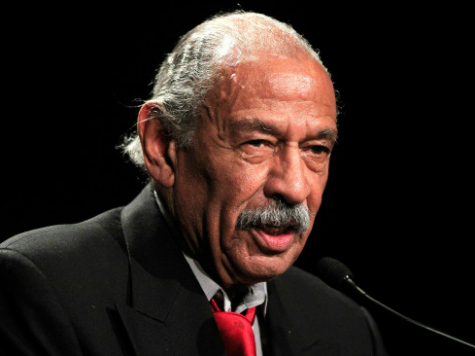
This election year, Democrat and longtime Congressman John Conyers did not satisfy Michigan election law by getting enough valid signatures on his nomination petitions, so the state ruled he did not qualify for the ballot. Now a federal judge has vacated the state’s decision and put Conyers back on the ballot.
The Congressman’s 49-year career was threatened with a sudden ending if he did not make the primary ballot, but Conyers can now breathe a sigh of relief as a federal judge has stepped in to challenge state authorities.
U.S. District Judge Matthew Leitman, an Obama nominee who has only been on the bench for two months, is now insisting that some of the state’s findings are incorrect.
Citing Conyers’s “good intentions,” Judge Leitman said in his Friday afternoon ruling, “There is evidence that their failure to comply with the Registration Statute was the result of good faith mistakes and that they believed they were in compliance with the statute.”
On May 9, Wayne County, Michigan, officials determined that Conyers was just over 500 signatures short of having enough to qualify for the ballot and suggested to the state election board that his name should be removed.
County and state officials determined that several of Conyers’s signature-gatherers did not legally qualify for the role, meaning that all the signatures they gathered were invalid. It was discovered that several of these campaign workers were not registered to vote in Michigan or did not live at the addresses that they gave to authorities, both violations of rules governing petition circulators.
Due to the violations of state election laws, by Friday morning, May 23, Michigan’s Secretary of State formally determined that Conyers’s name would not appear on the 2014 Democratic primary ballot.
In denying Conyers his spot on the ballot, the Secretary of State said that it found “clear examples of the failure to follow the basics, something that thousands of campaigns have routinely done since 1966.”
“The Michigan Election Law is designed to protect the purity of the ballot access process,” the Secretary of State’s review said. “The laws governing this activity place affirmative duties on petition circulators. As evidenced over the past two election cycles, when campaigns fail to comply with the law by executing basic principles of petition circulation, they create their own ‘ballot access crisis’ when their failures are discovered by or brought to the attention of election officials. In this instance, consultant Steve Hood freely admitted that he failed to ensure that the petition circulators he hired to work on Conyers’ campaign were registered to vote.”
Despite the state’s legal findings on the very same day that state election authorities determined that Conyers did not belong on the ballot, the Obama-appointed federal judge reversed that decision and insisted he be placed there anyway.
Follow Warner Todd Huston on Twitter @warnerthuston or email the author at igcolonel@hotmail.com.

COMMENTS
Please let us know if you're having issues with commenting.